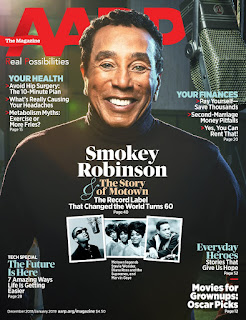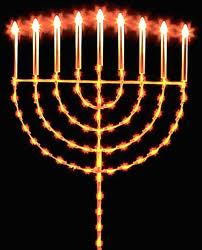One could even say that, before the eye-opening revelation from the angel-in-training, George was to – borrow an expression – seeing his life “through a glass, darkly.”
Fohr Haired Boy
Thursday, April 8, 2021
Hitting the three-score-and-ten-yard line
One could even say that, before the eye-opening revelation from the angel-in-training, George was to – borrow an expression – seeing his life “through a glass, darkly.”
Wednesday, February 4, 2015
A Special Message From Our Leader
Wednesday, December 21, 2011
There's something about George
 I’ve been trying to figure for
some time – what is the deal with George
Bailey? What is so compelling about the
tale of the executive secretary of a “cheap, penny-ante Building and Loan” that
draws me back year after year? Why is the holiday season just not
complete without my annual "It's A Wonderful Life" fix? It is as much
a part of my pre-Christmas routine as rum-laced eggnog, Bing Crosby crooning
"The Christmas Song" and desperate 11th-hour trips to the mall that
commence sometime after NORAD has picked up Santa’s sleigh crossing the Arctic
Circle.
I’ve been trying to figure for
some time – what is the deal with George
Bailey? What is so compelling about the
tale of the executive secretary of a “cheap, penny-ante Building and Loan” that
draws me back year after year? Why is the holiday season just not
complete without my annual "It's A Wonderful Life" fix? It is as much
a part of my pre-Christmas routine as rum-laced eggnog, Bing Crosby crooning
"The Christmas Song" and desperate 11th-hour trips to the mall that
commence sometime after NORAD has picked up Santa’s sleigh crossing the Arctic
Circle.Sunday, December 11, 2011
Let There Be Light
Friday, January 14, 2011
I get by with a little help from my Friends

I realized what a terrific person [Annie] was and how much fun it was just knowing her and I thought of that old joke, you know, this guy goes to a psychiatrist and says, "Doc, uh, my brother's crazy. He thinks he's a chicken." And, uh, the doctor says, "Well, why don't you turn him in?" And the guy says, "I would, but I need the eggs." Well, I guess that's pretty much how I feel about relationships. You know, they're totally irrational and crazy and absurd and … but, uh, I guess we keep goin' through it because, uh, most of us need the eggs.
-- Alvie Singer (Woody Allen), at the end of Annie Hall
That’s pretty much how I feel about Facebook.
It’s totally irrational and crazy and absurd, not to mention annoying and intrusive and addictive as hell.
It numbs your mind with requests to join “FarmVille” or “Send Cupcakes” or “Which US President Are You?" I just turned down an invitation to “[b]uild a virtual Football team on Facebook and compete against your friends!” Know what?!? No thanks!
(Advisory to all my Facebook Friends: I generally ignore any invitation to join ANYTHING with the word “Ville” – you know, FrontierVille, PetVille, HooterVille, DeliveranceVille – or attaching the prefix “e” or “I” or “@” to “Cupcakes” or “Hugs” or “Flowers.” However, if someone comes up with “What Kind of Schizophrenic Are You,” I will take a chance – just out of morbid curiousity.)
Sprinkled in are chatty status updates from your e-kith and kin about (pick one) the great batch of cookies they just made, a grandchild’s latest accomplishment or the video of the skiing dog that you just HAVE to see.
And the privacy issues? Don’t get me started.
Peridocally, a news story comes out about the latest privacy abuses, the latest revelation that Facebook – proclaiming its innocence all the while, its fingers firmly crossed behind its back while it smiles its smarmy smile – has sold your profile information to some megacorporation like so many rail car loads of Iowa corn.
Be assured, Facebook advertisers know you. They know your likes, your dislikes, your demographic profile, your digital DNA.
Recently one of my younger FB Friends posted a list of the advertisements that had shown up in her “sidebar”: “A special offer for cat lovers whereby I can purchase large tubs of kitty litter for only $4.99 each; An invitation to sell my eggs; Meet single dads in your area!; Details on how I might self-publish a book. Facebook has clearly pegged me as a lonely but fertile crazy cat lady with unrealized literary ambitions.
But Facebook’s Hal 9000 computer is clearly fallible, which I regard as sign we are not on the brink of the Apocalypse. It frequently tries to sell me books by Ann Coulter or Sarah Palin or to admit I really, after all, “like” Sean Hannity and Glenn Beck. Glenn Beck? REALLY? Are you paying attention, Hal? Do you know ANYTHING about my political leanings?
And yet … and yet. Like the motorist slowing to gawk at the highway crash, I can’t look away.
I’m too addicted to little gems like the ones frequently offered by one of my Friends, a literature professor in a New England college:
· “FYI: If you take a lit course, you should be prepared at least to read the Sparknotes if not the actual texts themselves. I'm pretty sure Gilgamesh did not visit the Temple of Doom, guys. But thanks for the laugh.”
· “Just noticed that most of the inhabitants of Sesame Street are effectively homeless. This became clear to me when Maria and Luis had to invite Big Bird and Abby the Flying Fairy to stay at their apartment during a bad rain storm. Something should be done.”
Likewise, I’m hooked on the e-banter I can engage my children in.
On New Year’s Eve, my older daughter posted a message on my Wall reminding me that as of midnight, “this goes to 11” – an homage to the movie This Is Spinal Tap, which has given birth to many family in-jokes. It led to each of us trying to one-up each other with lines from the movie:
Daughter: “Don't drink too much champagne tonight...you can't dust for vomit.”
Dad: “Are you challenging me to a Spinal Tap-off? Huh, punk? Oh ... I'm sorry. I should be more conciliatory. As we say, ‘Love your brother.’ We don't say it really, but ... No, we don't say it. ... We don't really, literally mean it. ... No, we don't believe it either ...”
Daughter: “I believe virtually everything I read, and I think that makes me more of a selective human than someone who doesn’t believe anything.”
Dad: “It’s such a fine line between stupid and clever.”
To the Spinal Tap-illiterate, this thread must have been as comprehensible as the Dead Sea Scrolls.
But to one of our mutual Friends, it was e-gold: “I love your family. Nerds, all.” To which my younger daughter replied, “Yep. All.”
Banter and silliness – necessary staples of life every bit as much as bread and India pale ale – periodically give way to the significant, the profound, the touching.
I am currently tracking the progress of a friend at the University of Washington Medical Center for chemotherapy. Daily posts by his wife provide not only timely updates on his progress but often produce what Dolly Parton’s character in Steel Magnolias described as her favorite emotion: laughter through tears.
It was through Facebook that I followed the arc of grief experienced by a Friend who lost his wife suddenly. He posted, for all his Facebook Friends to see, the stages he went through, in real time. Far from being maudlin or sentimental, his messages were thought provoking, vivid and unabashedly personal. He marked every significant milestone – the memorial service, the 30-day anniversary of her death, his return to work – and gave his friends a chance to respond, immediately, with thoughts and sentiments that I like to think were many times more heartfelt and personal than a Hallmark card.
At one point, he traveled to Hawaii and posted some beautiful sunset pictures from a beach where he and his wife had spent treasured times.
I shared with him the moving lyrics of Sand and Water, a song written by Beth Nielsen Chapman after the death of her husband:I will see you in the light of a thousand suns,
I will hear you in the waves.
I will know you when I come, as we all will come
Through the door beyond the grave.
He responded, “Thanks, Dave, that was very appropriate for my day yesterday!”So often, we are reduced to generic platitudes in dealing with grief. But because of the instantaneous nature of this new “social networking” medium, I was able to share those words at a time when they were likely to mean the most. At least I like to think so.
In one sense, Facebook is our digital back fence, a meeting place that spans cyberspace.
When author Russell Baker was a boy, he, his sister and their widowed mother lived with an aunt and uncle in Baltimore. In his warm and wonderful memoir, Growing Up, Baker fondly recalls the grownups’ talk around the kitchen table: “At New Street, we lived on coffee and talk. Talking was the great Depression pastime. Unlike the movies, talk was free, and a river of talk flowed through the house, rising at suppertime, and cresting as my bedtime approached before subsiding into a murmur that trickled along past midnight, when all but Uncle Charlie had drifted off to bed, leaving him alone to reheat the pot, roll another cigarette, and settle down with his book.”
I sometimes think of us as 21st century descendants of that communal rite, our laptops in place around the family room, the TV droning on as background noise, while we update old friends on the goings-on in our life, root for our favorite sports team, wring our hands over the sorry state of the world or share the latest pictures of our grandchildren.
At home, I never pass by my resting computer without glancing at the blue bar across the top of my Facebook home page, looking for the telltale white number on red background that tells me someone else reached out to me, across the miles, with a message or a comment or an invitation to “Friend” him or her.
In the film Shadowlands, Richard Attenborough’s extraordinary portrait of the relationship between C.S. Lewis and his wife, Joy, one of Lewis’s young students tells the Oxford don what his father – also a teacher – used to say about the reason we read: “We read to know we are not alone.”
That’s also the reason, in a digital age, we “post,” we “upload,” we “link” – and, in doing so, we consciously decide to put up with the Farmville invitations, the obnoxious targeted ads -- and the demands that we explain to the Hal 9000 WHY we didn’t like the ad and removed it from our sidebar.
We tolerate it all because, as the man said – most of us need the eggs.

















